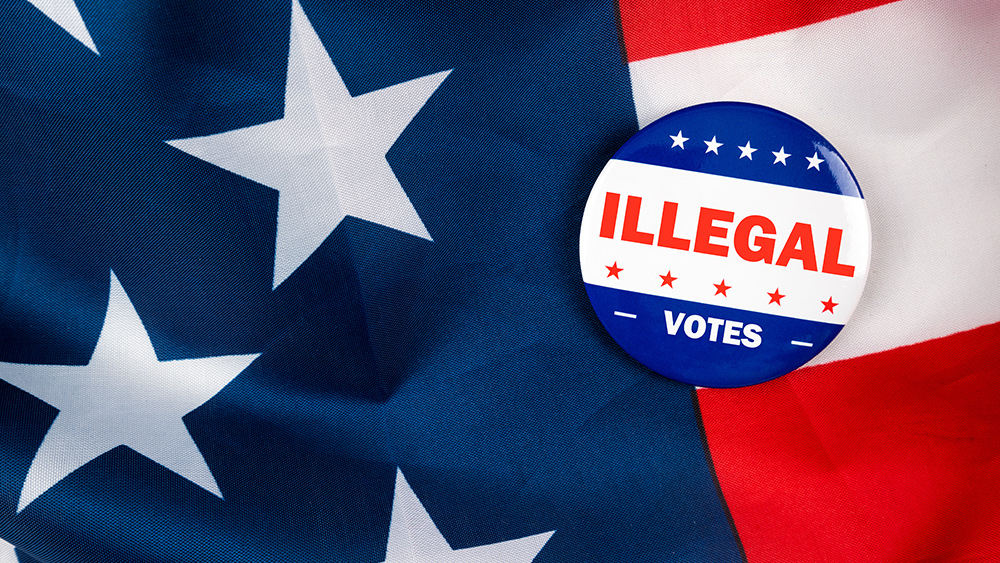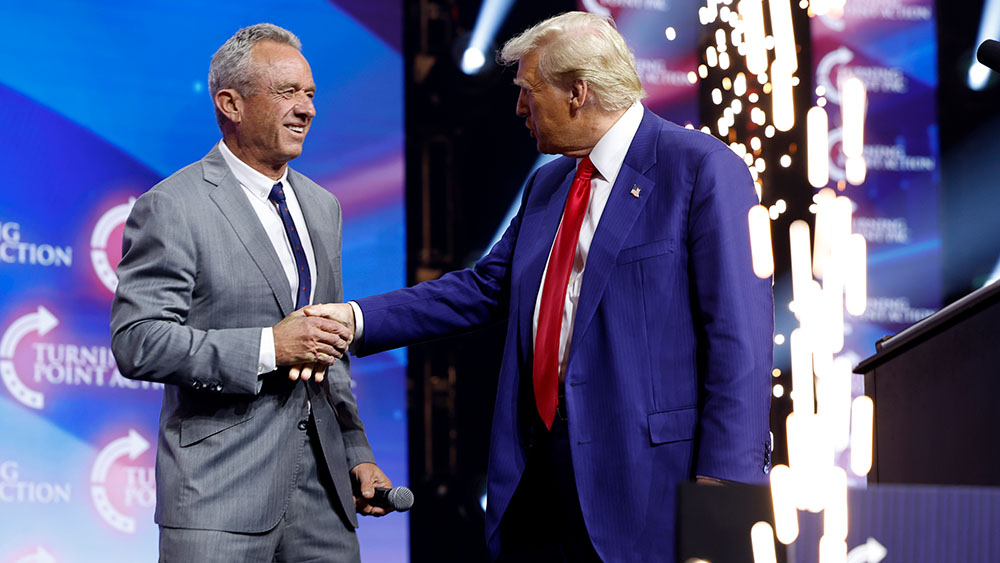Pesticide giants ramp up state-level political contributions to seek total legal immunity from lawsuits
11/08/2024 / By Richard Brown

Pesticide companies have significantly increased their political contributions at the state level as they grapple with rising legal liabilities linked to Roundup and other products.
Political action committees (PACs) associated with major pesticide manufacturers like Bayer and Corteva have poured hundreds of thousands of dollars into state politics in recent years.
This marks a stark contrast to 2016, when these companies contributed less than five percent of their total political donations to state-level candidates. In this election cycle, about 30 percent of their political contributions were directed to state candidates, reflecting a growing focus on influencing state legislatures. (Related: Taxpayer money being used to fund clandestine campaign to SMEAR chemical pesticide activists.)
Key states benefiting from this surge in PAC donations from Big Ag companies include California, New Jersey, Iowa, Idaho, Illinois, Hawaii, North Carolina and Texas.
These contributions often go to individual candidates receiving small sums, such as $500 or $1,000. However, experts say that even small donations can shape relationships and political priorities. Bob Stern, former general counsel of the California Fair Political Practices Commission, noted that donations help establish personal connections, making politicians more likely to listen to those interests.
Bayer and Corteva have been relatively quiet about the specific goals of their state-level contributions but have emphasized that the PACs allow employees to support legislators aligned with their interests, particularly in states considering key pesticide-related legislation.
One of their primary concerns is limiting the financial impact of lawsuits involving pesticides, especially cases where consumers, farmers and groundskeepers claim harm from chemical products.
Other issues include efforts to ban neonicotinoid pesticides and proposals to prevent states from imposing stricter pesticide labeling laws than those required by the federal government.
Big Ag using nonprofits or shell companies to fund their PACs
The contributions have been strategically targeted at influential lawmakers, particularly those leading agriculture and environment committees in state legislatures. In some states, these donations have gone to rising political stars who hold significant sway over pesticide-related legislation.
For instance, Bayer’s PAC increased its donations from less than $25,000 in the 2016 and 2018 election cycles to between $70,000 and $144,000 in the 2020, 2022 and 2024 cycles. Similarly, Corteva’s PAC, which gave nothing in 2016 and 2018, has contributed between $9,800 and $48,000 per election cycle since.
These financial contributions are just one part of the pesticide industry’s broader political strategy. Alongside campaign donations, companies engage in lobbying efforts and often use “dark money” groups – nonprofits or shell companies that funnel money to super PACs without disclosing the original donors. As such, direct donations to candidates represent only a portion of the industry’s influence.
Bayer’s PAC explained that it participates in the political process to support its business interests and customers, while Syngenta’s PAC expressed similar sentiments, saying it helps legislators who back agricultural policies.
This rhetoric emphasizes the companies’ focus on protecting their interests amid increasing legal challenges over products like Roundup, a widely used herbicide linked to non-Hodgkin lymphoma. While Bayer maintains that glyphosate – Roundup’s active ingredient – is safe when used as directed, the company has faced thousands of lawsuits, and the financial toll is steep – Bayer set aside $6.3 billion for glyphosate litigation in 2023.
Pesticide companies are pushing for laws that would limit damages in pesticide-related injury cases. Bayer has backed the Agricultural Labeling Uniformity Act, a federal bill that seeks to standardize pesticide labeling and prevent states from enacting stricter requirements. In Iowa, legislation to shield pesticide manufacturers from liability has been introduced, though it failed to pass. Nonetheless, industry insiders expect such bills to return in future sessions.
In states like California and Hawaii, pesticide safety and regulation continue to be hot-button issues. California recently passed laws addressing pesticide use in schools and expanding safety reviews of neonicotinoids, while Hawaii has pushed for increased disclosure of restricted-use pesticides and better safety measures for workers. Despite strong advocacy from environmental groups, such bills often face resistance from industry-backed lawmakers.
Critics argue that the pesticide industry’s increasing political influence – bolstered by significant PAC donations and lobbying efforts – undermines efforts to protect public health and the environment. As Bayer and other companies work to limit their financial exposure to pesticide injury lawsuits, they are shifting more of their focus to statehouses, where they can shape the legislative landscape and reduce the legal risks associated with their products.
For lawmakers in agricultural states, these contributions create a complex challenge in balancing corporate influence with the needs of their constituents, particularly those concerned with pesticide safety and accountability.
Watch this discussion regarding the dangers of Roundup and other herbicides.
This video is from the channel OneNinetyFiveNationsRising on Brighteon.com.
More related stories:
Study finds pesticide exposure leads to 41% higher risk of miscarriage.
Dumbing them down: Toxic heavy metals and pesticides found in children’s school lunches.
Living near pesticide-spraying farms is equally carcinogenic as SMOKING.
Sources include:
Submit a correction >>
Tagged Under:
agriculture, Bayer, Big AG, big government, chemicals, conspiracy, corruption, Corteva, deception, deep state, elections, evil, glyphosate, insanity, outrage, political action committees, politics, Roundup, Super PACs, Toxic, toxic chemicals, toxins, traitors, weed killer
This article may contain statements that reflect the opinion of the author
RECENT NEWS & ARTICLES
COPYRIGHT © 2017 CORRUPTION NEWS




















